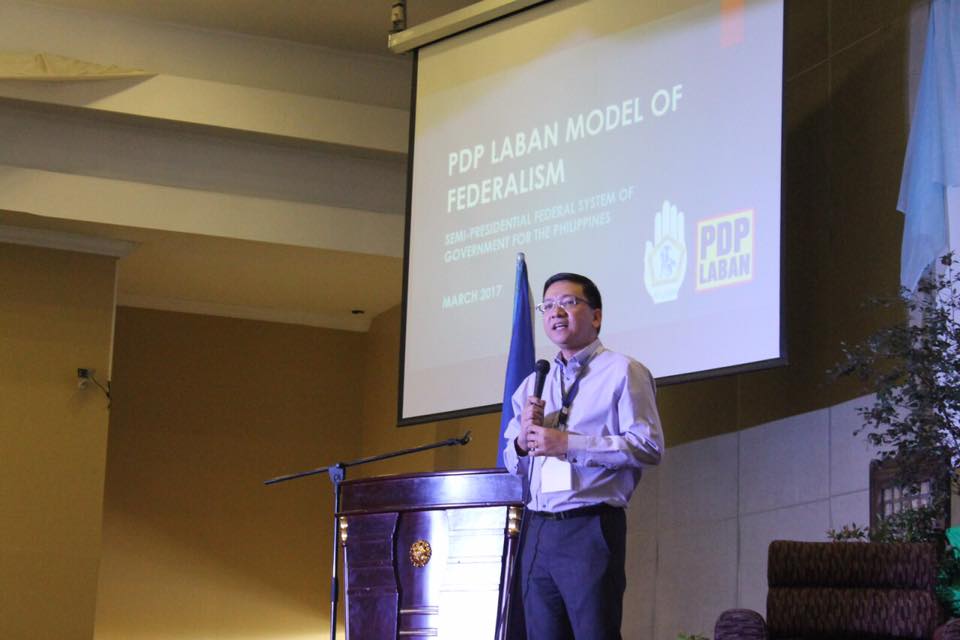News
Federalism is highest form of decentralization: DILG spox
MANILA — Federalism is the highest form of decentralization, Department of Interior and Local Government (DILG) Assistant Secretary and Spokesperson Jonathan Malaya said Thursday.
Malaya made this remark during the fourth Senate hearing on charter change, noting that the problems of the country such as the dependency of the local governments to the central or national government cannot be addressed by “piecemeal reforms.”
“It is the DILG’s position that this problem cannot be addressed by piecemeal reforms within a unitary state framework. It is our conclusion that true decentralization cannot and will not happen under a unitary state,” Malaya said during the Senate hearing.
He pointed out that the best way to improve the lives of a vast majority and not only the rich regions, is to adopt “true decentralization.
”
“To us, federalism offers a more viable alternative because it is the highest form of decentralization there is given its inherent principles of shared rule, and self rule between the national government and constituent units,” he added.
‘Holding-together’
Malaya, however, clarified that here is no “one-size-fits-all” model of federalism.
“Federalism scholars contend that there are as many federalism models as there are federal countries. Every federal country has a distinct model that works best for its own country.
We must discern model of federalism according to our conditions,” Malaya said.
The DILG executive said that there is a different context to federalism in the Philippines, describing it as a “holding together” federalism.
“We are holding-together federalism because we are already a unitary state shifting to a federation. Thus, many of the standard features in other countries do not apply to us because of our different context,” Malaya said.
He also allayed fears that the country will be dismembered if it should shift to a federal form of government.
“The fear that if we shift to federal system our country will be dismembered is based on the premise of a coming together federalism. Since our federalism is holding together, there is no possibility of our country being dismembered,” he stressed.
Same old
Malaya said that if the country would retain a unitary state, “the rich regions and cities will continue to be rich and continue to grow while poor regions will continue to stay poor.”
“We have been burdened by an over concentration of political, administrative and fiscal powers in Manila which prevent full support and services from befitting the farthest reaches of the country,” Malaya said.
“It is the position of the DILG that simply amending the local government code will not lead to true national development but to the same stunted growth and uneven lopsided development across he different regions of the country,” he added.
The official also said that devolution under the same unitary state framework will lead to the same results as previous piecemeal attempts at decentralization.
Despite local experimentation with decentralization through all of these piecemeal legislation, Malaya said that the National Capital Region, Central Luzon and Region IV-A currently accounts for 62 percent of the entire gross domestic product. While the rest of the country, account for a mere 38 percent.
“The dependency relationship between the central government and the local government has reduced much of our local governments
as mere brokers of assistants to their constituents. The normal system in our local government is they have to the national government to ask for projects,” Malaya said.
Not the right time
Former Supreme Court Associate Justice Vicente Mendoza, for his part, said he did not think it was the “right time” to amend the constitution noting that there is too much political strife and that prevents a nation from building and developing.
Mendoza said that he would instead propose amendments that would push for greater decentralization.
“I propose instead, certain amendments as far as the system of government is concerned, maintain it but greater decentralization,” Mendoza said.
He said that although decentralization has been done in the Constitution, decentralization “has not been fully practiced.”
“We have not reached the bottom so let us try decentralization instead of federalizing and dividing the country,” Mendoza said. “What we need is a constitutional moment when people’s minds would be focused on higher things instead of petty politics.”
He also wanted to break down political dynasties. (PNA)






















